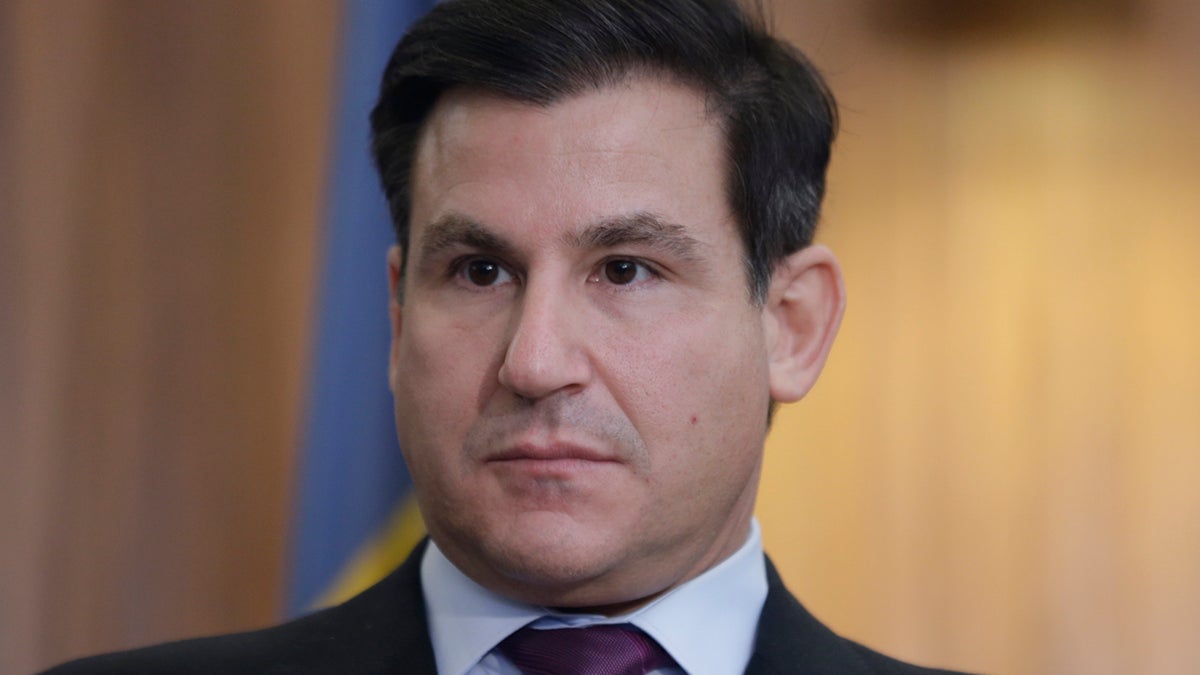Bribery charges against Pa. state Sen. Larry Farnese could hinge on U.S. Supreme Court case
Listen
State Sen. Larry Farnese
Attorneys for state Sen. Larry Farnese are preparing for battle. It comes after federal prosecutors indicted him Tuesday for allegedly buying the support of a Democratic party leader in 2011.
The case goes to the heart of hotly debated questions like what constitutes evidence of bribery and kickbacks under federal law, and where is the line drawn between normal political favors and corruption?
The U.S. Supreme Court has a pending case dealing with these very issues, and Farnese’s attorneys think the outcome could affect their case.
Farnese’s legal team is closely watching the case of former Virginia Gov. Bob McDonnell who was convicted in 2014 after receiving money and gifts from a businessman who wanted a seat at the table. The businessman did get the meetings he wanted: talks with state officials and state university officials asking them to run clinical tests on a dietary supplement that he hoped would one day gain FDA approval. But the former governor’s attorneys argue he never explicitly told any officials what to do.
As former federal judge Nancy Gartner told Slate’s Amicus podcast, the distinction between arranging a meeting and asking people to take a specific action makes a meaningful difference.
She uses the hypothetical of “Mrs. Jones” being the businessperson looking for access. She said the official might suggest “talk to Mrs. Jones. I think she has something interesting to say.” Or the official could go farther and say, “talk to Mrs. Jones and do what she said.” Or she could may something in between. Where on the spectrum it crosses the legal line can sometimes be ambiguous.
Justices on both sides of political aisle seemed skeptical that an elected official urging people to talk, even after receiving some perks, should be a crime. A decision is expected next month. If McDonnell’s conviction is overturned, it could become harder for federal prosecutors to charge elected with quid-pro-quo schemes.
Farnese, meanwhile, is accused of sending a $6,000 campaign “donation” to Bard College, where a committeewoman’s daughter was attending, to help her pay for a study abroad program.
After that, prosecutors say that committeewoman switched her vote to support Farnese as ward leader, an unpaid but politically important party position. That committeewoman, Ellen Chapman, was also indicted.
“Is this such a problem issue that the federal government ought to poke its nose in it?” said former federal prosecutor Peter Vaira, adding that this kind of bribery is not always clear-cut.
“One prosecutor may decide that this type of a case is worth prosecuting, and someone in Arizona might say no,” Vaira said.
But he said federal prosecutors often think if they don’t investigate instances of alleged city political corruption, local District Attorneys and State Attorney Generals might never get around to it.
“That’s one thing that the prosecutors say, ‘the locals would never do this, they’re too bound up with fires, rapes and murders,'” he said.
Vaira noted that federal prosecutors often turn a local concern into a federal crime by charging mail fraud, which is among the offenses prosecutors outlined on Tuesday.
In a statement, Farnese’s attorney Mark Sheppard said the donation in question was reported in accordance with federal law. He also said that politics “in the real world” is based on relationships and favors. Federal prosecutors in Washington, he thinks, are trying to criminalize everyday politics.
Did Farnese write a check in exchange for Chapman’s vote? Or was he writing a check just to curry favor? And if so, is that enough to constitute a federal crime?
The first hearing on these questions regarding Farnese is expected sometime in June, after which Sheppard said he will be filing a motion to dismiss.
Farnese is seeking a third term as a state senator in November with no Republican contending for the seat.
WHYY is your source for fact-based, in-depth journalism and information. As a nonprofit organization, we rely on financial support from readers like you. Please give today.




